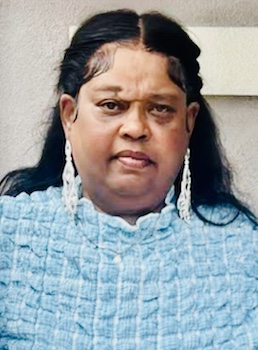Mosquito season underway, city seeking grants to help
Published 7:00 am Saturday, June 10, 2017

- RISKY BUSINESS: Mosquitos carry a number of viruses, some of the deadly to some residents. Photo by Jeremy Pittari
Mosquitos carry a number of viruses, from West Nile to chikungunya and now Zika.
While Zika has made headlines over the past year, the primary virus to look out for in Mississippi is still West Nile because it can be deadly, Liz Sharlotte, director of communications for the Mississippi State Department of Health, said.
So far this year, only one case of travel related Zika was reported by the Mississippi Department of Health. That case was reported in February. No other cases of Zika, either travel related or locally generated, have been reported.
No cases of West Nile have been reported so far this year, she said.
The mosquito that transmits the Zika virus, which is spread by the Aedes species of the insect, has not been prevalent in Mississippi since the 1990s, Sharlotte said. Anyone planning to travel to areas where Zika is prevalent should avoid doing so if they are pregnant since the virus can cause birth defects.
While Zika is a concern for potential travelers, Sharlotte stressed the major concern in Mississippi is West Nile, which is transmitted by mosquitos that do thrive in Mississippi.
Even though there is currently no risk of local infection of Zika, the MSDH continues to monitor mosquito populations and infection rates.
When a case of travel related Zika occurs, Sharlotte said MSDH works with that person to stress the use of repellant and ensure the infected person avoids being outside for two to three weeks.
The best course of action to prevent all mosquito borne illnesses is to remove all sources of standing water from around the home, which is where mosquitos breed. Other precautions include using mosquito repellants, wearing clothing that covers the skin and avoiding being outside during dusk and dawn, which when mosquitos are most active.
A grant is currently being applied for by the city of Picayune to provide further protection from mosquito borne illnesses, including West Nile and Zika. Public Works Director Eric Morris said the federal grant, if approved, would provide more funding to allow the city to purchase preventive measures currently out of budget. Those include additional chemicals, traps, mobile treatment equipment such as backpacks and educational material for the public.
Currently, the city sets aside funding to allow mosquito population reduction treatments to be conducted each week. Morris said that during mosquito season, which typically occurs from early May to as late as November, crews work in various districts daily to ensure the entire city is treated at least once a week. The only times crews do not spray is during times of rain or high humidity.
In an effort to better keep track of the mosquito populations, two kinds of traps were requested in the grant application. Morris said those traps will allow the city to keep tabs on current mosquito population numbers and types, and help the city work with MDHS to identify species in the area, which alert officials if a different breed has made its way to Picayune.
For more information on controlling mosquito populations visit http://msdh.ms.gov/.





